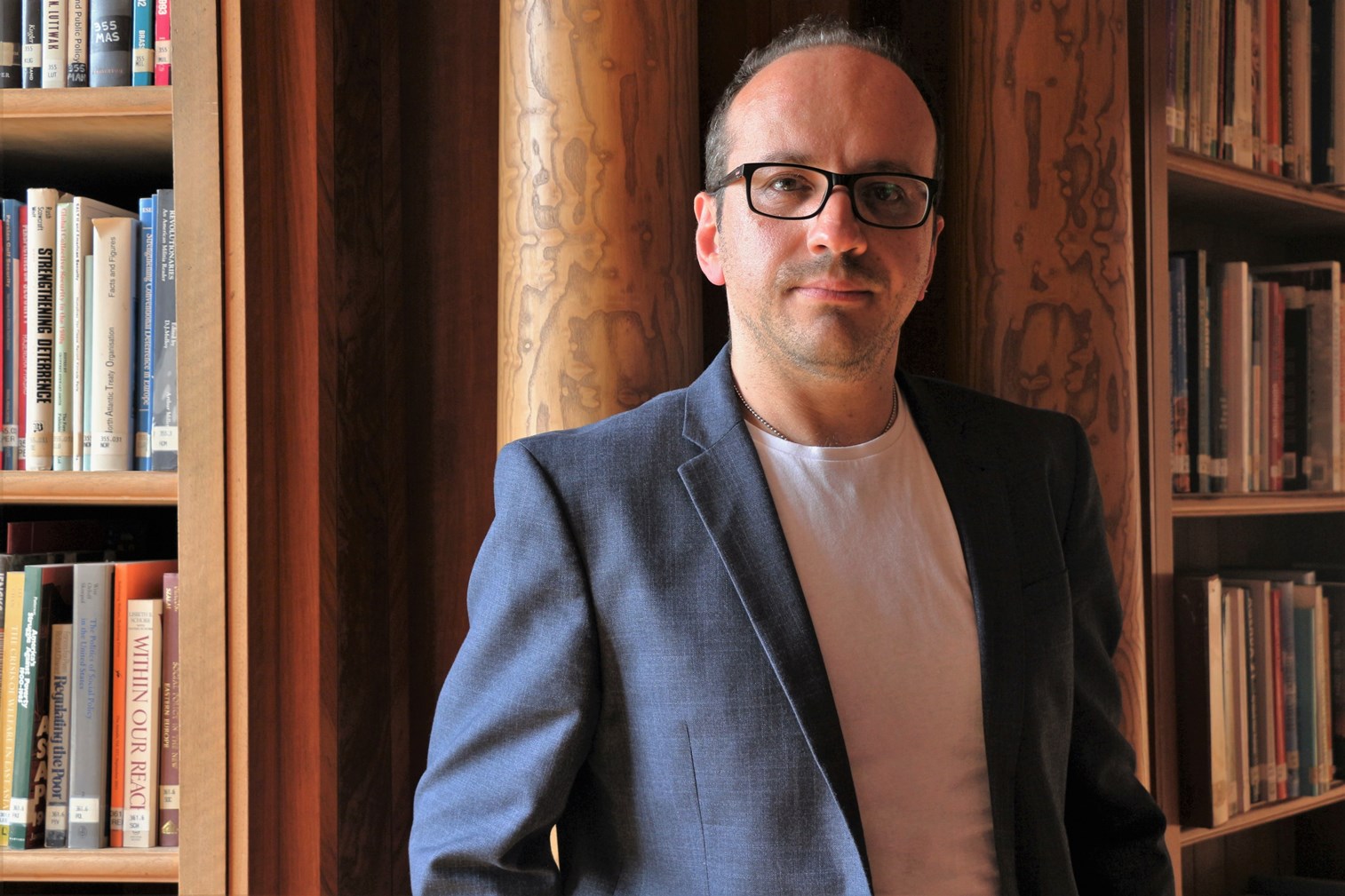 Dr Roman Gerodimos is an Associate Professor of Global Current Affairs in the Faculty of Media & Communication. In today’s blog post he reflects on the seismic shifts the pandemic has accelerated in research practice and the serendipitous benefits of this change:
Dr Roman Gerodimos is an Associate Professor of Global Current Affairs in the Faculty of Media & Communication. In today’s blog post he reflects on the seismic shifts the pandemic has accelerated in research practice and the serendipitous benefits of this change:
“The pandemic forced us to adapt and transform the way we do research, teaching and professional practice across the board. The restrictions to domestic and international travel have eliminated physical conferences and workshops, and have severely limited the amount and types of fieldwork we can carry out.
Yet, at the same time, we have observed the emergence of two very important trends: new modes of dynamic, collaborative research work and mutual support within BU; and an exponential increase in opportunities for participation in external events, which can greatly boost our global engagement.
Within BU: last summer, along with a few colleagues at the department of Communication & Journalism, we started to organise Virtual Research Days. We “borrowed” the format of our Writing Retreats – which in the good old days used to take place at the Miramar and the Green House Hotel: we picked a day of the week, then blocked our calendar for 5 hours (10am-3pm), joined a Teams call and had two focused sessions (10.00-12.15, 12.45-3.00) on a piece of research that we had chosen (this could involve any research-related task, from a bit of data analysis to writing a few paragraphs, and from sending emails to co-authors to reviewing a journal article). We used the first 15 minutes of each session to share our goal for the session with our colleagues, and the last 15 minutes to debrief and reflect on how the session went. The rest of the time we worked individually, with email and phones being switched off.
This simple format worked wonders: our productivity immediately shot up, while our short reflection session proved invaluable. I think I now understand more about my colleagues’ individual research interests and projects than at any other time over the last 20 years at BU, while seeing how everyone struggles with and overcomes creative, intellectual and practical barriers has been really interesting and made this work feel less solitary. Our summer ‘retreats’ became so successful that we decided to pilot and then formally roll them out throughout the academic year, so we now have at least one designated day each week for C&J colleagues and PGRs to come together and work on their research.
We have seen similar patterns across all our research sessions: attendance in our research seminars, research practice seminars, lunchtime sessions, and even our various conferences and workshops has been higher than ever, as the online format makes them much more accessible to people who may not be on campus, while it also allows participants to multitask and join conversations as needed, none of this would have been possible in the conventional physical format.
Beyond BU: the shift to online events has removed physical access barriers making both them and us available to a global audience. During the last few days, I have given a talk at Oxford University, delivered a keynote at a TechCamp conference organised by the US State Department, met with stakeholders from the European Parliament and Transparency International, participated in seminars with leading journalists from all over Europe, and next week will be giving an endowed lecture and doing a separate film screening and Q&A at Simon Fraser University in Canada. Last summer and autumn, I spoke or participated at countless conferences, seminars, book launches and media interviews organised by a very diverse range of external stakeholders, while I now get an average of one invite a day. Obviously, giving Zoom talks is not quite the same as being in Vancouver or Washington DC or even Oxford, and the convenience of doing this from home does change the cost/benefit calculation, putting a lot of pressure on us as academics to accept invites. But, while nothing can replace the experience of physical co-presence and the importance of random encounters that come with travelling, the opportunities for global engagement and networking are very significant.
All these tectonic shifts in our research practice happened within an extremely compressed period of time: academia’s equivalent to ‘overnight’. Seeing the way our teams have come together and embraced this new mode of working, as well as the opportunities for outreach and engagement that this has created, has been quite affirming and, despite all the challenges that we have been facing, makes me feel very optimistic about our future as a research community.”
 BU Research Matters: ADRC adapt their approach in the time of COVID-19
BU Research Matters: ADRC adapt their approach in the time of COVID-19 Why research matters at BU – now more than ever
Why research matters at BU – now more than ever BU Research Matters: the evolution of research during a global pandemic – joining our research community
BU Research Matters: the evolution of research during a global pandemic – joining our research community










 Dr. Ashraf cited on ‘Modest Fashion’ in The Guardian
Dr. Ashraf cited on ‘Modest Fashion’ in The Guardian NIHR-funded research launches website
NIHR-funded research launches website Academics write for newspaper in Nepal
Academics write for newspaper in Nepal New paper published on disability in women & girls
New paper published on disability in women & girls Global Consortium for Public Health Research 2025
Global Consortium for Public Health Research 2025 MSCA Postdoctoral Fellowships 2025 Call
MSCA Postdoctoral Fellowships 2025 Call ERC Advanced Grant 2025 Webinar
ERC Advanced Grant 2025 Webinar Horizon Europe Work Programme 2025 Published
Horizon Europe Work Programme 2025 Published Horizon Europe 2025 Work Programme pre-Published
Horizon Europe 2025 Work Programme pre-Published Update on UKRO services
Update on UKRO services European research project exploring use of ‘virtual twins’ to better manage metabolic associated fatty liver disease
European research project exploring use of ‘virtual twins’ to better manage metabolic associated fatty liver disease